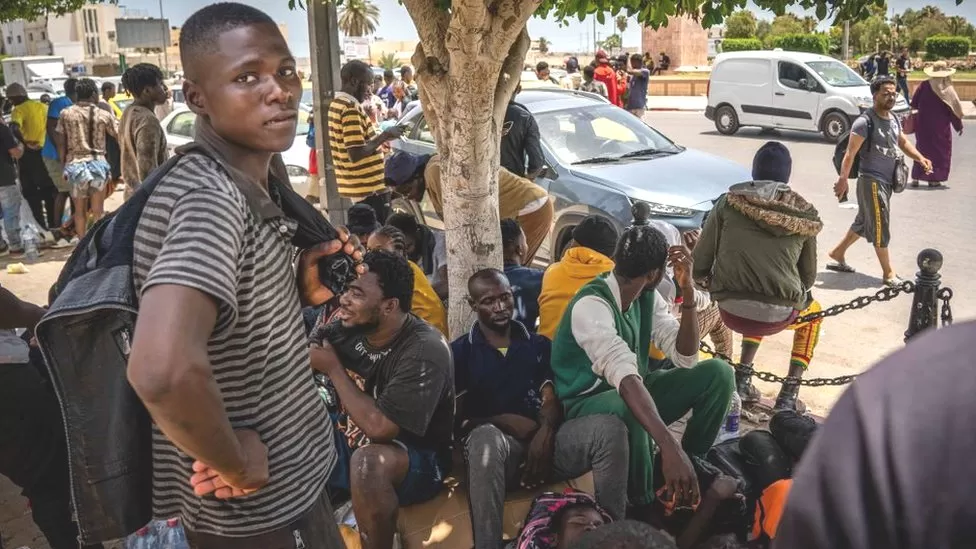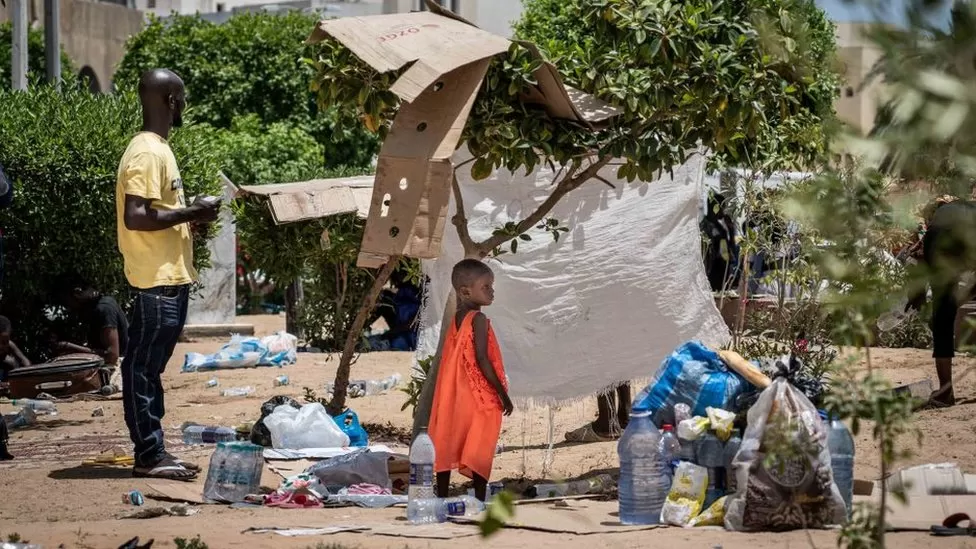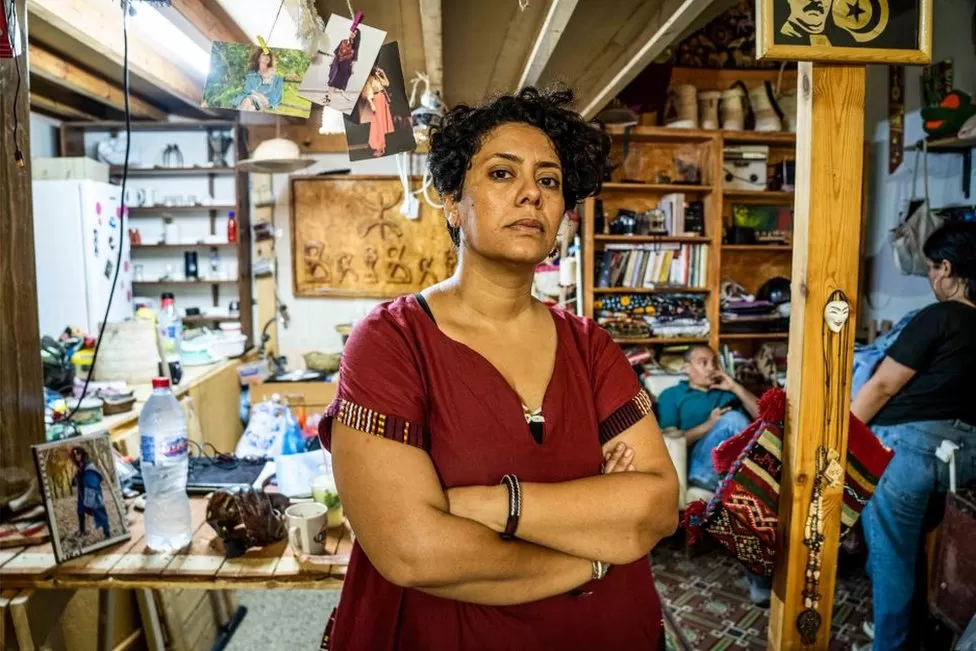How African migrants survived racial attacks in Tunisia

In the Tunisian coastal city of Sfax, Louise Fallone describes the moment when masked attackers broke into her home and chased her out with her one-year-old baby strapped to her back.
At 2am, Tunisian teenagers attacked us… They threw stones at us and held a knife to my throat.
The Tunisian neighbor threw me a blanket as I fled the scene unclothed with my baby.
They broke everything we owned and took my money.”
Originally from Ivory Coast, Ms Fallone works in a coffee shop in pursuit of better economic opportunities.
A week ago, a 41-year-old local man was fatally stabbed after an altercation with several migrants from sub-Saharan Africa resulted in a wave of xenophobic violence.
The BBC team drove into the city with the car’s temperature gauge reading 40C (104F) when they saw dozens of migrants holding signs saying “peace” along the dusty road.
Locals sounded horns as they passed the encampment in support. The locals also gave out water and bread.
The hostility toward these migrants remained, however.
The attack has been widely documented in videos. Masked perpetrators scream “black Africans are a threat to us and our women” before inciting people to assault migrants.
One man shouts, “Let’s kick out all these migrants. We don’t want them to live here.”

We slept on the concrete with hundreds of migrants in order to understand why this city was erupting in violence.
Several dozen people had visible injuries from the 4 July attacks, which they told us about. Heat stroke nearly rendered one woman unconscious.
Twenty-five people, including children, were treated in hospitals after the attack. According to one migrant, his seven-year-old brother was among them.
The footage from that night shows police in attendance, but they do not seem to intervene.
We requested numerous comments from the police, but they refused.
Nevertheless, the authorities did respond the following morning, forcing more than 100 migrants to flee to the Tunisian-Libyan border.
Further 1,000 Tunisians have been evacuated from the city and taken to the Libyan and Algerian borders, local Tunisian officials reported.
People with deep lacerations and open wounds are seen in videos shot by migrants at the Tunisian-Libyan border and sent to Human Rights Watch (HRW).
Authorities beat them, they claim.
In what HRW called a “collective punishment,” migrants, asylum seekers, and students were expelled. They lived legally in Tunisia in some cases, but not in others.
There was no comment from the border authorities regarding the allegations.
According to Kais Saied, Tunisia’s president, migrants were receiving aid in line with what he called “our values.”
Sfax is now experiencing relative peace. The attacks, however, remain the main topic of conversation in the city’s numerous coffee shops.
The violence that occurred last week outrages local shopkeeper and activist Miriam Bribri, but she is unsurprised by it.

The internet was flooded with racist videos. I saw such disgusting posts. I was already worried that such an upsurge of anger would lead to violence.”
President Said is also blamed by her. His comments earlier this year claimed that sub-Saharan African migrants were bringing “violence and crime” to the country.
Defending basic principles against racism and violence was shocking to me,” says Ms Bribri
The Facebook account Sayeb-Etrottoir, meaning “Clear the Sidewalks”, was criticised for promoting violence last week in Sfax.
A few days before the attack, the page advocated saving Sfax from migrants.
An influential member of the group, Zied Mallouli, vehemently denies that the posts sparked violence.
The BBC asked him to speculate about the reason for the street protests.
For them, it was a matter of liberation. They believe migrants have taken over their homes and will settle here.”
He was clear, however, about what he would like to happen next.
“The authorities should deport all the people in downtown Sfax and put them in a camp as an immediate solution,” Mallouli said.
Approximately 300 migrants have set up camp close to a small rubbish dump in Sfax since being displaced.
There are only cardboard mats for them to lay on and a few trees for shade from the scorching sun, but the stink of rotting food from the dump surrounds them.
Miriam, a mother of two from Sierra Leone, says she feels like giving up after spending four days here with her family because we have no other place to stay. “I am just so tired. I want to give up,” she says.
It is almost impossible for her to get a loan in order to return.
